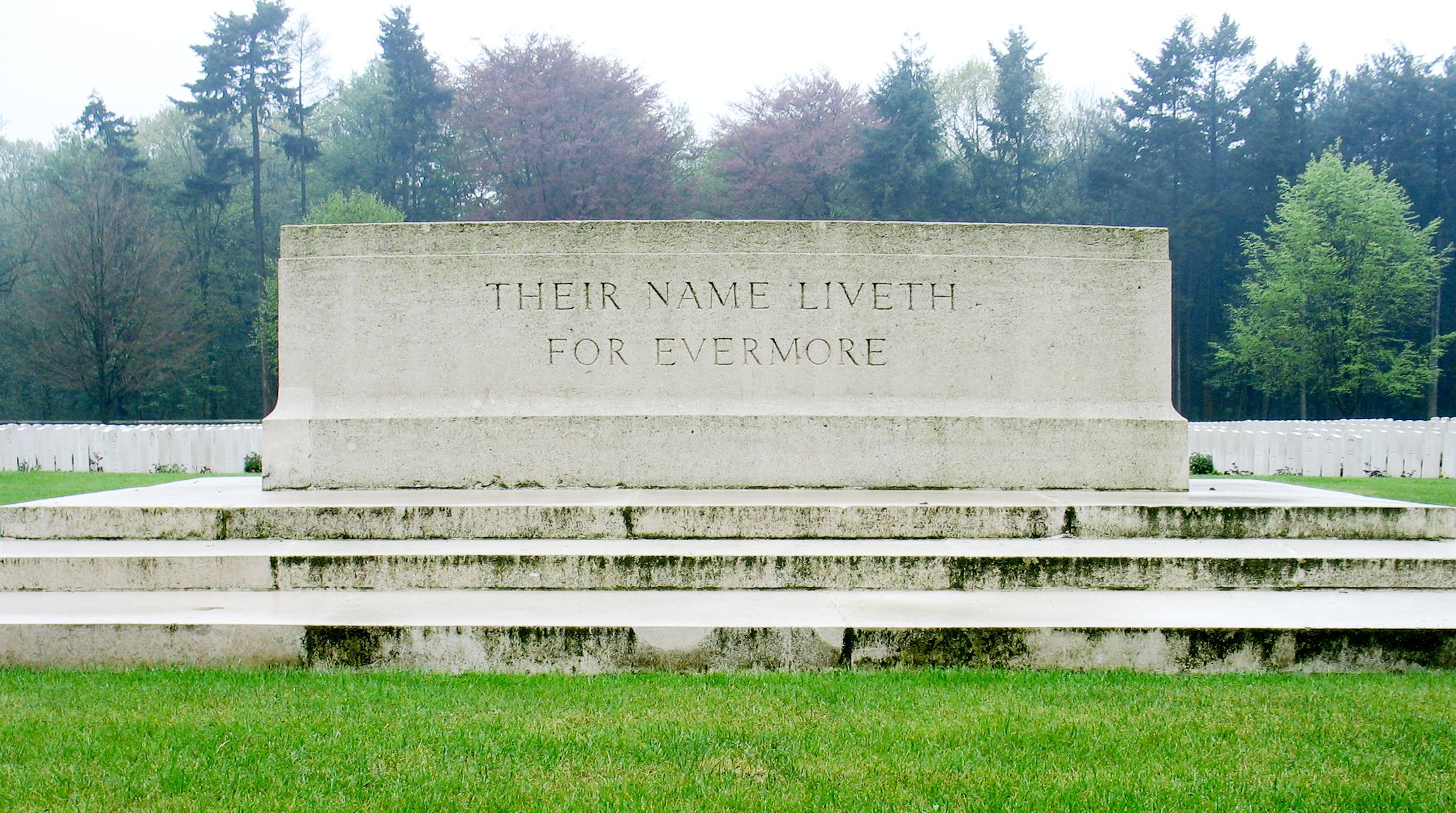Their Name Liveth For Evermore on:
[Wikipedia]
[Google]
[Amazon]
{{No footnotes, date=January 2022 "Their name liveth for evermore" is a phrase from the
"Their name liveth for evermore" is a phrase from the
His words liveth for evermore
The Guardian, 11 November 2007
Ecclesiasticus, chapter 44
King James Version
Acts, chapter 15
King James Version
Return to Gallipoli: Walking the Battlefields of the Great War
Bruce Scates, p.42-43
Commemorations: The Politics of National Identity
edited by John R. Gillis, p.153, 162
The Cambridge Companion to Rudyard Kipling
edited by Howard J. Booth, p.91
Making Sense of Dying and Death
edited by Andrew Fagan, p.17
The Anglican Planet, 15 November 2013 English phrases War poetry
 "Their name liveth for evermore" is a phrase from the
"Their name liveth for evermore" is a phrase from the King James Version
The King James Version (KJV), also the King James Bible (KJB) and the Authorized Version, is an Bible translations into English, English translation of the Christian Bible for the Church of England, which was commissioned in 1604 and publis ...
of the Bible
The Bible (from Koine Greek , , 'the books') is a collection of religious texts or scriptures that are held to be sacred in Christianity, Judaism, Samaritanism, and many other religions. The Bible is an anthologya compilation of texts of a ...
, forming the second half of a line in Ecclesiasticus or Sirach, chapter 44, verse 14, widely inscribed on war memorial
A war memorial is a building, monument, statue, or other edifice to celebrate a war or victory, or (predominating in modern times) to commemorate those who died or were injured in a war.
Symbolism
Historical usage
It has ...
s since the First World War
World War I (28 July 1914 11 November 1918), often abbreviated as WWI, was one of the deadliest global conflicts in history. Belligerents included much of Europe, the Russian Empire, the United States, and the Ottoman Empire, with fightin ...
.
In full, verse 14 reads "Their bodies are buried in peace; but their name liveth for evermore". The chapter begins with the line "Let us now praise famous men, and our fathers that begat us." The full text of verse 14 was suggested by Rudyard Kipling
Joseph Rudyard Kipling ( ; 30 December 1865 – 18 January 1936)''The Times'', (London) 18 January 1936, p. 12. was an English novelist, short-story writer, poet, and journalist. He was born in British India, which inspired much of his work.
...
as an appropriate inscription for memorials after the First World War, with the intention that it could be carved into the Stone of Remembrance proposed by Sir Edwin Lutyens for the Imperial (now Commonwealth) war cemeteries. Lutyens was initially opposed, concerned that someone might inappropriately add an "s" to "peace", but relented when the phrase was cut down to just the second part of the verse, omitting the reference to bodies resting in peace.
Kipling also suggested the memorial phrase " Known unto God" for gravestones marking the resting place of unidentified or unknown soldiers, possibly taken from Acts
The Acts of the Apostles ( grc-koi, Πράξεις Ἀποστόλων, ''Práxeis Apostólōn''; la, Actūs Apostolōrum) is the fifth book of the New Testament; it tells of the founding of the Christian Church and the spread of its message ...
, chapter 15, verse 18—"Known unto God are all his works from the beginning of the world". The memorial phrase " lest we forget" is taken from Kipling's poem " Recessional"—"Lord God of Hosts, be with us yet / Lest we forget—lest we forget!"
References
His words liveth for evermore
The Guardian, 11 November 2007
Ecclesiasticus, chapter 44
King James Version
Acts, chapter 15
King James Version
Return to Gallipoli: Walking the Battlefields of the Great War
Bruce Scates, p.42-43
Commemorations: The Politics of National Identity
edited by John R. Gillis, p.153, 162
The Cambridge Companion to Rudyard Kipling
edited by Howard J. Booth, p.91
Making Sense of Dying and Death
edited by Andrew Fagan, p.17
The Anglican Planet, 15 November 2013 English phrases War poetry